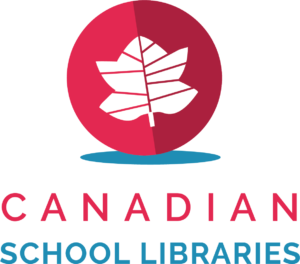Ontario is confused about its school libraries. The foundations of teacher-librarianship have never been more closely aligned with Ontario’s education priorities. Current thinking about the school library as a learning commons, exemplified by Ontario’s Together for Learning (Ontario Library Association 2010) and new national standards, Leading Learning: Standards of Practice for School Library Learning Commons in Canada (Canadian Library Association 2014) is inspiring educators about realizing new potential for leveraging instructional leadership from the library learning commons. The Ontario Curriculum affirms the advantages of having a teacher-librarian collaborating with teaching colleagues at the school.
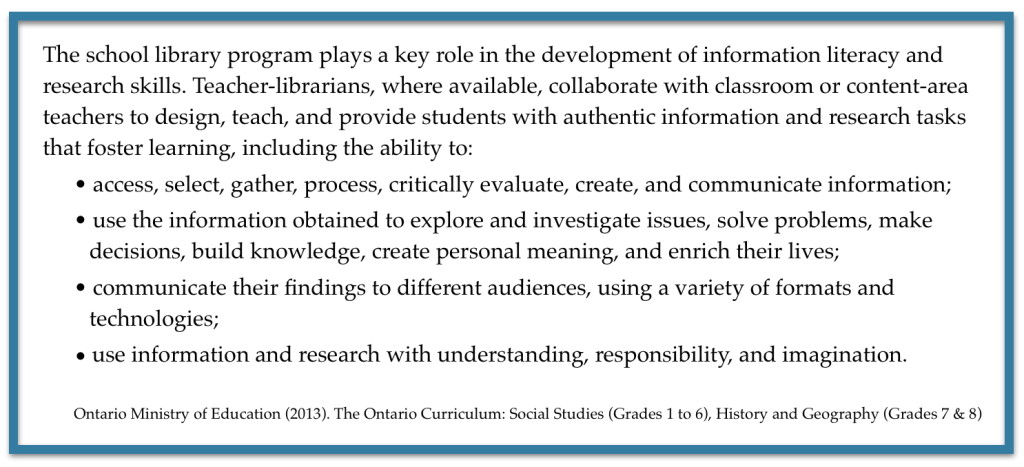
The Funding Disconnect
That the curriculum includes the disclaimer “where available” when it comes to teacher-librarian staffing indicates Ontario’s disconnect between the acknowledged importance of a professionally staffed school library and the reality of education funding. Staffing for school libraries and guidance services has been placed outside funding for classroom teachers in the funding formula, and this has opened the door for school districts to staff libraries however they see appropriate. The resulting disparity in library staffing across Ontario’s schools contributes to overall confusion about the potential of the program.
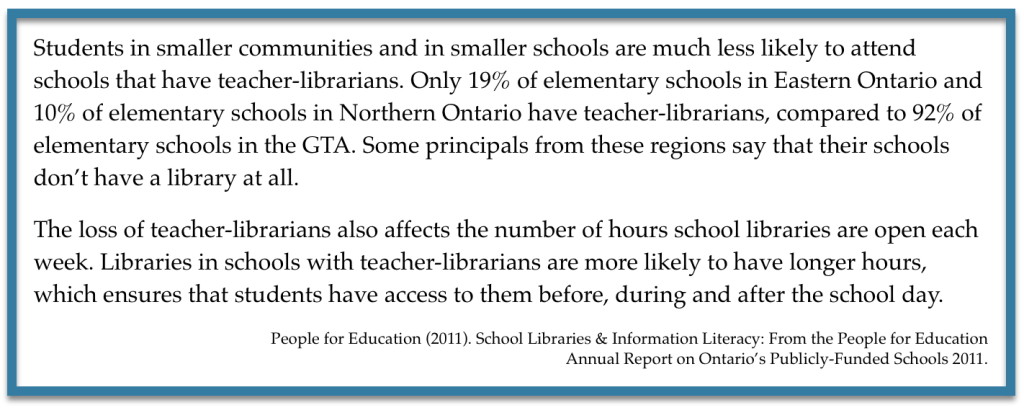
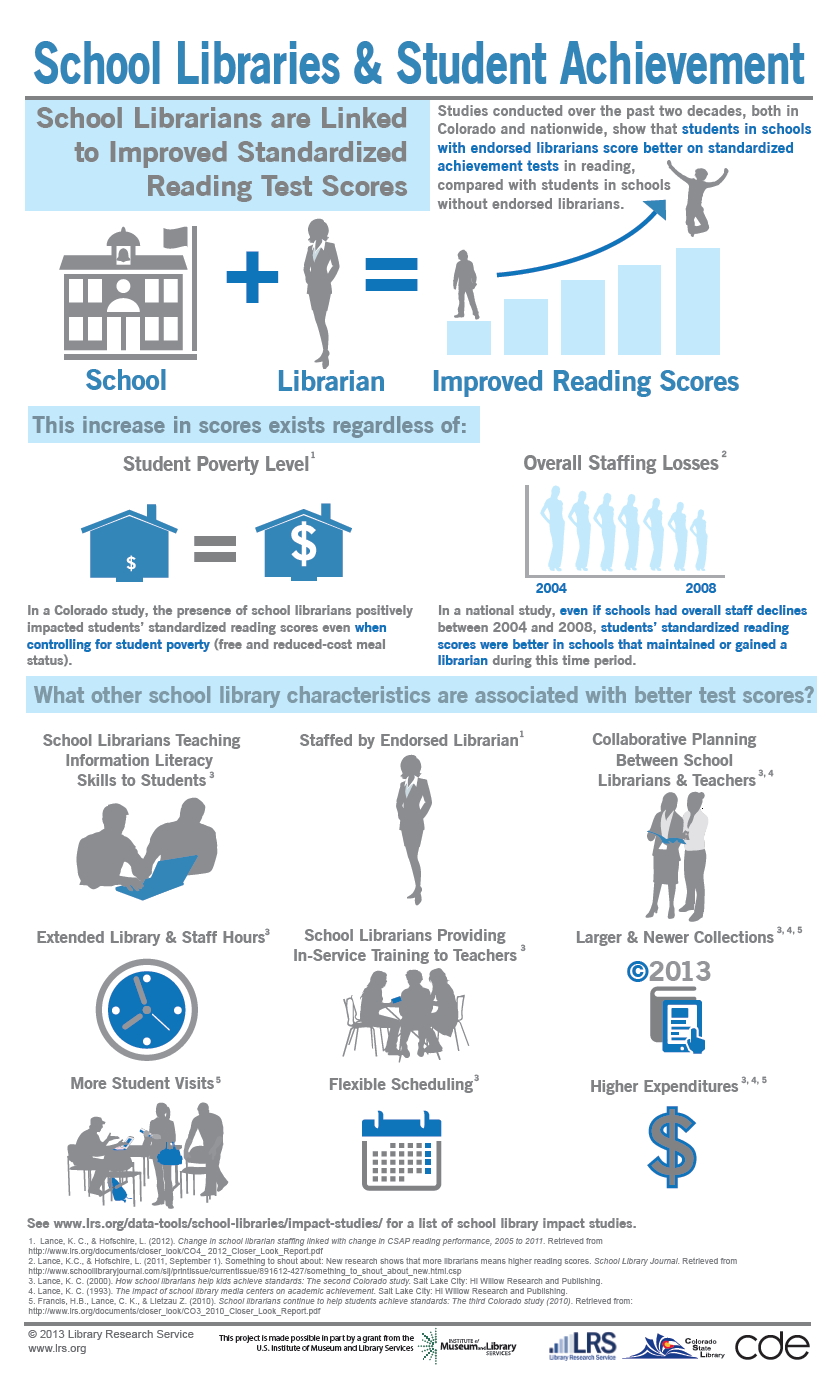 TCDSB Proposes Cutting Teacher-Librarians from Elementary Schools
TCDSB Proposes Cutting Teacher-Librarians from Elementary Schools
The current situation with the Toronto Catholic District School Board (TCDSB) is deeply concerning, and provides a disturbing example of Ontario’s disconnect. Faced with a budget deficit, the TCDSB is proposing to eliminate 45 full-time equivalent teacher-librarian positions from its elementary schools and replace them with library technicians. This despite a large and compelling body of research indicating that the impact of school library programs on student success is derived from the teacher-librarian. Teacher-librarians who teach information literacy skills, collaboratively plan with their teaching colleagues and facilitate professional learning have a direct impact on student success. The results of international studies are corroborated by research conducted in Ontario, as summarized on this page from the Ontario Library Association.
Drawing attention to the positive impact of teacher-librarian staffing shows no disrespect for the role of the library technician. Indeed having a good library support structure is critical in a school system, and the competencies of library technicians are critical in this regard. Staffing structures that leverage the competencies of both roles are optimum. Staffing structures where roles are misunderstood confuse expectations for both and promote the diminished role of the school library overall.
Cutting teacher-librarians at a time when Ontario is implementing inquiry-based learning and the effective integration of technology constitutes a huge lost opportunity. The foundation of teacher-librarianship is to collaborate with teachers in inquiry-based learning, technology for learning, reading engagement and information literacy. Investing in teacher-librarians is a cost-effective way of supporting sustainable and ongoing professional learning in schools to achieve Ontario’s educational goals.
What is Ontario’s Vision for School Libraries?
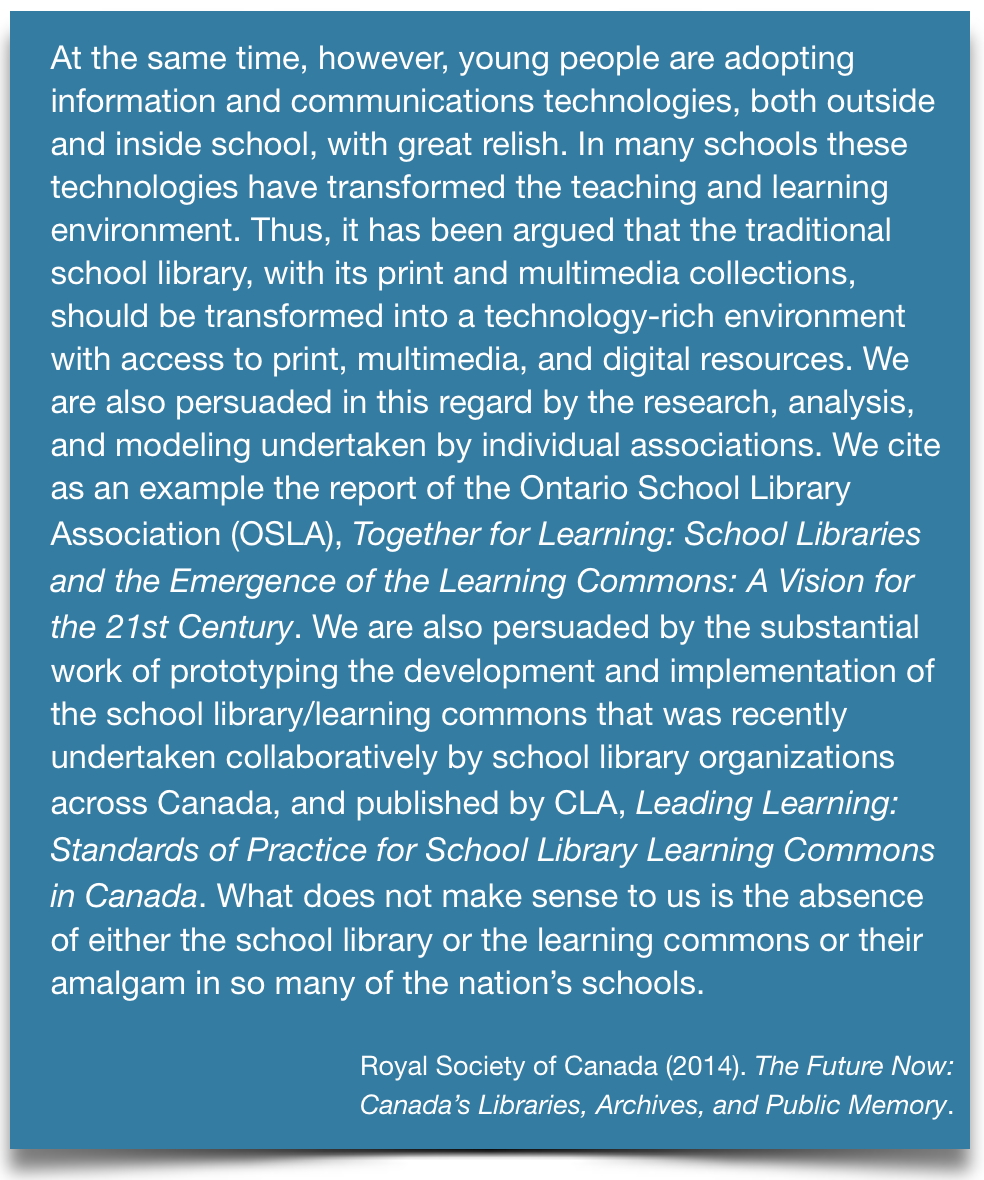 The Royal Society of Canada addressed the future of school libraries in its recently-released expert panel report, The Future Now: Canada’s Libraries, Archives, and Public Memory (November 2014). Citing the research, and the exciting work being done by school library practitioners in realizing the vision of the new school library learning commons, the expert panel recommended that “the Council of Ministers of Education Canada (CMEC) commission a pan-Canadian assessment engaging the full range of stakeholders, to bring forward a clear and prescriptive set of directives to frame a national policy consensus on the most appropriate model for school libraries / learning commons to maximize their contribution to the K-12 experience and its learning outcomes.” (RSC Expert Panel Report, 2014)
The Royal Society of Canada addressed the future of school libraries in its recently-released expert panel report, The Future Now: Canada’s Libraries, Archives, and Public Memory (November 2014). Citing the research, and the exciting work being done by school library practitioners in realizing the vision of the new school library learning commons, the expert panel recommended that “the Council of Ministers of Education Canada (CMEC) commission a pan-Canadian assessment engaging the full range of stakeholders, to bring forward a clear and prescriptive set of directives to frame a national policy consensus on the most appropriate model for school libraries / learning commons to maximize their contribution to the K-12 experience and its learning outcomes.” (RSC Expert Panel Report, 2014)
We have yet to hear a response from the CMEC to this recommendation. The Ontario Ministry of Education and many school districts have recently made some significant strides in leveraging the role of the school library learning commons and teacher-librarians in implementing inquiry-based learning, character education and digital literacy, yet the funding and staffing disconnect continues.
The school library is the largest learning space in most schools outside of the gymnasium, and that space is designed to facilitate inquiry-based and collaborative learning. Ontario has invested significantly in technological infrastructures and resources for school libraries. Surely it makes sense to take full advantage of the educational opportunities offered by the school library learning commons, given this level of investment.
The current situation with the TCDSB underlines the urgency for Ontario to formulate clear policies about the role of the school library and appropriate staffing and funding.
Responding to the TCDSB
The Toronto Catholic District School Board’s proposal to eliminate 45 FTE elementary teacher-librarian positions can be found on page 4 of this budget committee report. They are inviting input from the community with this Budget Deficit Consultation Survey, which must be completed before March 26. You are not required to be a TCDSB ratepayer in order to complete the survey.
The situation in the TCDSB is the latest manifestation of the lack of provincial policy on school libraries. Surely the evidence is in. Cutting teacher-librarians is a regressive move. Investing in properly staffed and resourced school library programs is an investment in realizing Ontario’s aspirations for young learners.
The confusion will continue until the Ontario Ministry of Education takes the initiative to formulate the kind of policy that the Royal Society’s expert panel calls for, and truly leverage the school library learning commons for the benefit of Ontario’s K-12 students.

